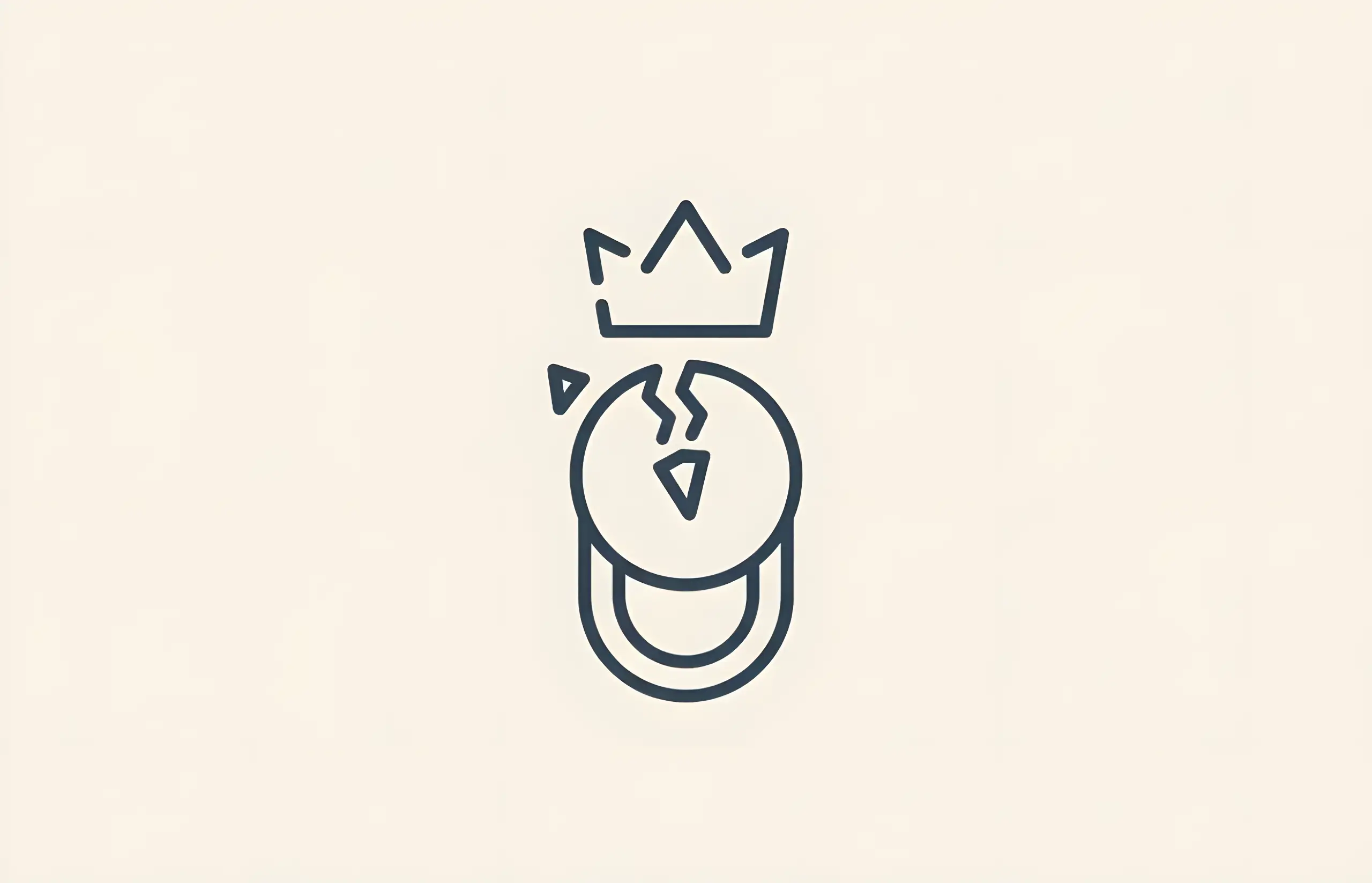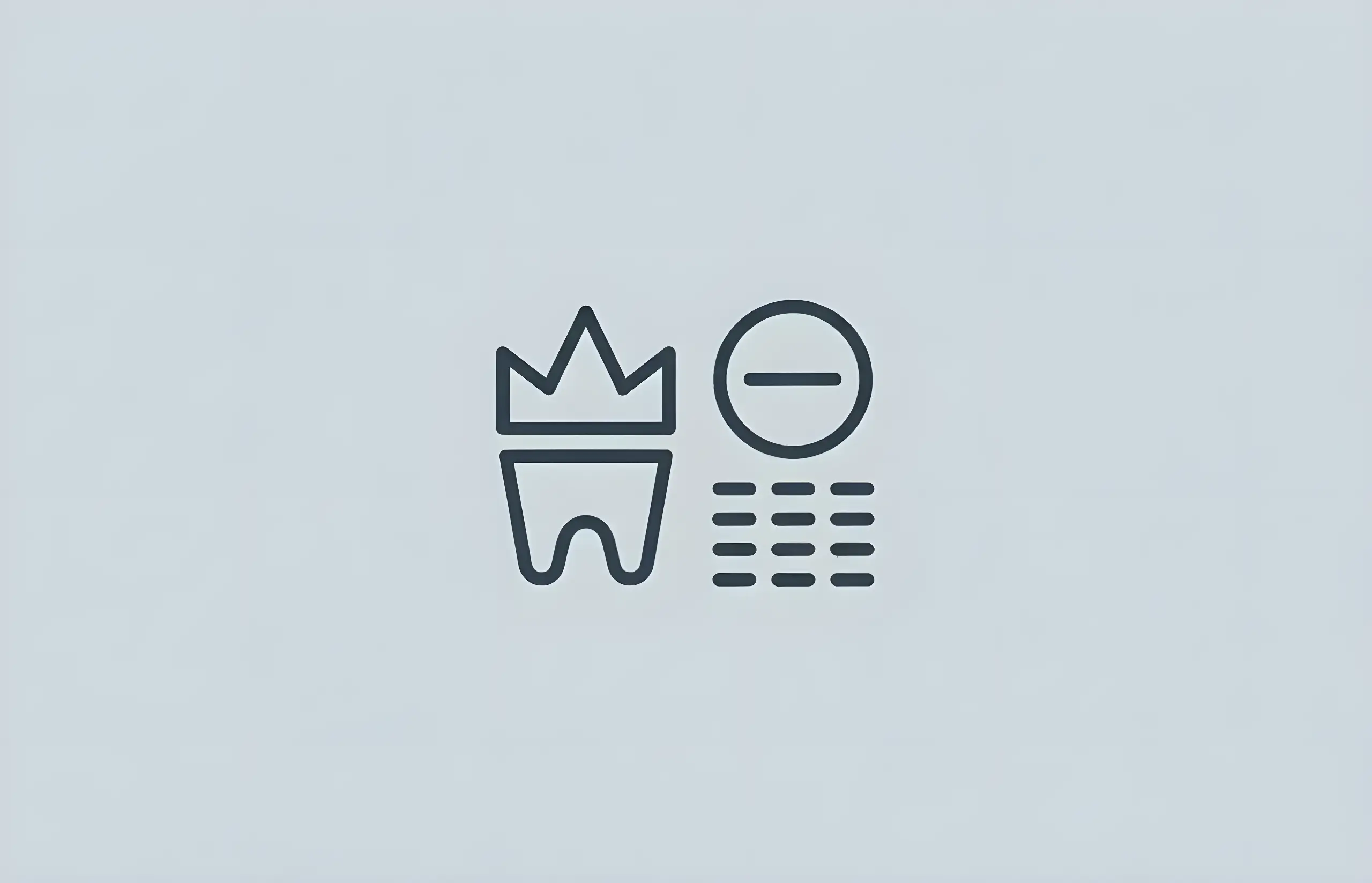A dental crown is essentially a cap designed to cover a damaged or weak tooth and provide support. A dental crown is usually used when a tooth is damaged or broken but a filling cannot restore its normal function. A crown is also used to attach a bridge, cover a discoloured tooth, or prevent a weak tooth from getting fractured.
Typically, crowns are made of resin, porcelain fused to metal, all-ceramic, all-porcelain, or metals such as nickel, palladium, chromium, and gold. Dental crowns are fairly durable, and with proper care, they can last for around 15 years or more.
However, there are times that your crown can get broken, chipped off, become loose and even fall out. If your crown breaks or chips off, then it is very important to know what to do.
How Can a Dental Crown Break or Chip?
A dental crown is quite strong and sturdy and will not suddenly break on its own. However, there may be certain situations that can cause your dental crown to break or chip off, such as:
- Result of an injury such as getting hit on the face or falling down
- Biting down very hard
- Grinding your teeth
- Normal wear and tear
What to Do If Your Crown Has Chipped Off?
If your dental crown has broken or chipped off, sometimes it may not cause any discomfort, and you may not even notice it. However, if the crown is broken badly or missing, it can cause pain, especially if the tooth pulp has been affected. Also, if the broken crown is in the back of your mouth, then you may experience discomfort, especially while chewing food.
A broken crown may also cause sensitivity to cold and hot foods. In addition, the broken or chipped crown may have a jagged edge that can irritate the surrounding tissue or your tongue. And, if the chipped crown is cutting your tongue, it needs immediate attention because not only will the cuts cause a lot of pain, they can also lead to ulceration.
Check the crown to see if any part is missing or dislocated. If the crown is loose, then take it off so that you don't swallow it. Using warm water, rinse your mouth. If there is any bleeding at the site of the chipped crown, then apply pressure to the affected area using a piece of gauze.
See your dentist as soon as possible; however, if it is not possible and your visit to the dentist is delayed, use some temporary dental material or dental cement available at any drugstore to protect the affected tooth. You can also use chewing gum or dental wax to cover the sharp edges of the broken/chipped crown.
Is It Possible to Repair a Chipped Crown?
Determining if your dental crown can be repaired or not depends on the severity of the damage. If the entire crown or part of it has come off, then save it and take it along with you to the dentist, who will determine if it is possible to repair the broken or chipped crown and reuse it.
If the crown has a minor chip, the dentist may be able to repair it using a composite material like resin. Generally, crown repairs with resin are only temporary and replacing the crown is the best option. However, if the crown has a very small crack or chip, the dentist may decide to repair it by filing down the crown and polishing it.
However, this can be either a temporary or a permanent solution, depending on how the crown looks and feels. But, if the crown has a significant crack or chip, it may not be possible to repair it, and you may require a replacement.
In cases where repairing or replacing the crown is not possible, your dentist may recommend a dental implant or even tooth extraction. The cost of fixing the chipped or broken dental crown will depend on how badly it has been damaged and if it can be repaired at all.
How to Prevent Your Crown from Getting Chipped?
You can protect your dental crown and prevent it from breaking or chipping by:
- Not using your teeth to open bottle tops, bags, etc.
- Avoiding biting down very hard
- Wearing a mouth guard to prevent you from grinding your teeth at night while you sleep
- Not eating hard foods such as ice, nuts, pretzels, seeds, etc.
- Avoiding sticky foods such as candy
- Practising good oral hygiene
The Final Word
In conclusion, dental crowns are rugged, durable and long-lasting; however, they can fall off, break, crack, or get chipped. A broken or chipped dental crown is not typically an emergency; however, if it does occur, it must not be ignored. Make sure to see a dentist as soon as possible, lest it causes dental problems in the long run.
Sources and References
-
[1]
Standardizing Failure, Success, and Survival Decisions in Clinical Studies of Ceramic and Metal-Ceramic Fixed Dental ProsthesesClinical Oral Implants Research (PubMed Central)https://www.ncbi.nlm.nih.gov/pmc/articles/PMC3271854/
-
[2]
Bruxism: A Literature ReviewThe Journal of the Indian Prosthodontic Society (PubMed Central)https://pmc.ncbi.nlm.nih.gov/articles/PMC3081266/
-
[3]
Retrospective analysis of porcelain failures of metal ceramic crowns and fixed partial dentures supported by implantsClinical Implant Dentistry and Related Researchhttps://pubmed.ncbi.nlm.nih.gov/19463666/
-
[4]
A systematic review of the survival and complication rates of all-ceramic and metal-ceramic reconstructions after an observation period of at least 3 yearsClinical Oral Implants Researchhttps://pubmed.ncbi.nlm.nih.gov/17594372/
-
[5]
Fractographic analysis of anterior bilayered ceramic crowns that failed by veneer chippingJournal of Prosthodontic Researchhttps://pubmed.ncbi.nlm.nih.gov/24634900/
All sources accessed and verified on . Medical information reviewed for accuracy and compliance with current guidelines.
Related Articles
About The Dental Guide
The Dental Guide is a trusted online resource providing evidence-based information about dental health, treatments, and procedures. Our content is created and reviewed by qualified dental professionals to help you make informed decisions about your oral health.
Our Mission
- Evidence-based dental information
- Expert-reviewed content
- Clear, accessible explanations
- Latest treatment options
- Patient-focused guidance
Editorial Standards
- GDC-registered dental professionals
- Peer-reviewed sources
- Regular content updates
- Medical accuracy verification
- Transparent authorship
Important Notice
The information on The Dental Guide is for educational purposes only and should not replace professional dental advice. Always consult with a qualified dentist for diagnosis and treatment recommendations tailored to your individual needs and circumstances.
Medically Reviewed
Reviewed by Dr. Nasim Mechoui , BDS (Bristol)
Share this article
Comments & Discussion
Have questions about dental implants? Share your thoughts or experiences.

